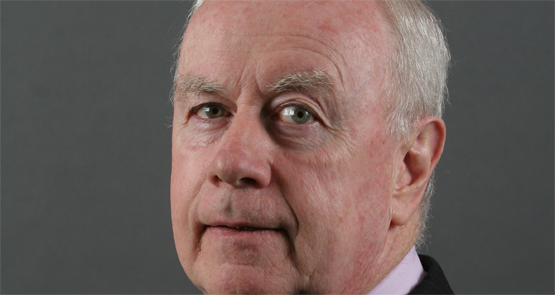Who doesn’t love a bit of basic misinterpretation of Marxism, the movement that got almost everything wrong about socialism — and almost everything right about capitalism? Alan Kohler is the past master at this, but we have a new champion with Paul Kelly’s piece in The Australian on the new Vatican encyclical denouncing the destruction of the planet by capitalism.
Kelly’s response at least acknowledged that the encyclical was a big deal (Gerard Henderson, in a pathetic, inadequate, clearly peeved comment on Lateline, claimed that it had been written because “the encyclical writing committee needed something to do”). Kelly’s assessment of the document as a major event is, if anything, even more peeved than Gollum’s. Kelly calls the encyclical’s position — that the pursuit of profit for its own sake is not only destroying the world but results from a fundamental, ungodly, error about human nature — a “Green-left view”.
This is nonsense, of course, and Kelly is either ignorant of the Catholic Church’s critical attitude to commerce, or, more likely, desperate to elide it. The Church predates capitalism and has always held that the unchecked expansion of commerce is a spiritual disaster. That’s why it banned finance, i.e. “usury”, for centuries, endorsed bans on high wages for craftspeople during the mercantilist era, and attempted to put limits on the Portuguese and Spanish empires. In Rerum Novarum of 1891, the Church made explicit its ruling that capitalism could be inimical to the good life through the unchecked expansion of profit.
This encyclical is in that tradition — hence its frequent references to St Francis. It seeks to contest the oft-used argument that the green movement is pagan, and that Christians should take the injunction in Genesis that the earth is there for humanity as a blessing of capitalism. But it is not there for humanity to trash, via the endless extension of the market. In the final analysis, the market is nihilistic — valuing everything in terms of exchange, it turns all ends into means, denying both humanity and God.
That should be an obvious point, but it was underplayed throughout the 20th century during the Church’s war on communism and its long alliance with liberal capitalism. Those from a right-wing Catholic tradition would like to pretend this relation was a deep affinity. It wasn’t, and now that Leninism has vanished as a political movement, the Church is free to once again attack nihilistic capitalism. Kelly’s assertion that the Pope’s advisers are “quasi-Marxist” is equally anachronistic, when it’s not flat-out wrong. Marxism, as a means, is actually pro-capitalist, seeing capitalism as a liberator from the mediaeval ideas of fixed existence of which the Church was a part.
Kelly, criticising the encyclical, praises China for having used “the market” for lifting people out of poverty, without acknowledging that this was done by Deng Xiaoping, an ardent Marxist if ever there were one — and less starry-eyed about the market than Kelly: throughout China’s economic miracle, more than 50% of the economy stayed in state hands, and five-year plans remained. China’s miracle was more socialist than capitalist, simply a new version of the “New Economic Policy” that Lenin had started in the USSR in the early 1920s (and that Stalin had knocked on the head). Now that the market had done its work, the Chinese Communist Party is reining it in, in a drive to restore levels of social cohesion.
Dear, oh dear. Poor old Paul doesn’t have a clue what’s going on. Everywhere people are getting ready for the end of capitalism as an overarching mode of global organisation. Rip van Australia remains unwilling to accept that the world is not going to burn itself down simply because we never developed a plan B for the day when people stop burning coal. Kelly presents himself as part of the solution, challenging complacency. He’s part of the problem, reinforcing lazy nostalgia for past political eras. Meanwhile the world is moving on, getting to grips with the enormous challenges we face, responding out of their own traditions but in a critical relation to them, from Beijing to the Vatican and back again.









Interesting article. The right cannot help itself, attack anything that is critical of the wanton destruction inherent capitalism’s “profit at all costs” edict.
Of course the Cap’n and many of his motley crew are Catholics (or professed Christians), yet have attempted some of the most cynical anti-christian thinking politics in their first budget.
Wasn’t it Christ that spoke about the difficulties of a rich man entering heaven? These ‘experts’ need to go back to the source to view true social teachings.
Another great article by Rundle given a really crappy point-missing headline by Crikey’s subeditors
“Marxism, the movement that got almost everything wrong about socialism — and almost everything right about capitalism” – love that!
It’s hardly surprising to have it confirmed that Guy has as good an understanding of Christianity as he does of Marxism, Capitalism and much more.
You’re on fire today Norman.